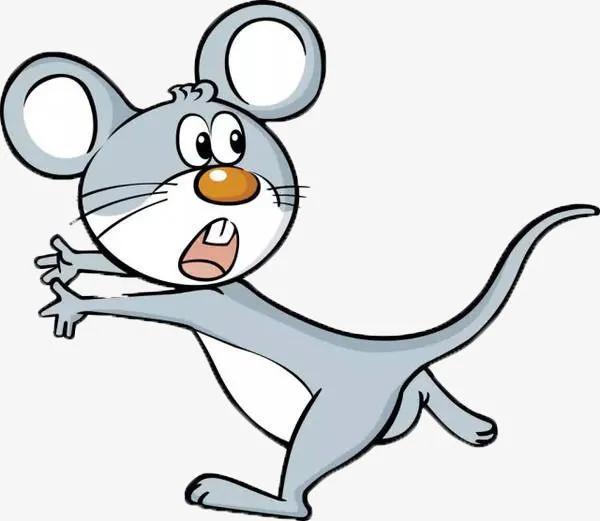初二上册英语课文翻译冀教版第8课(冀教版八年级英语上Unit5)
Lesson 25第二十五课
I want to Be a Teacher!
我想成为一名教师!
1What are you good at?你擅长什么?
What would you like to be in the future?未来你想做什么?
1.1be good at(doing) sth.擅长(干)某事。
1.2in the future在将来,在未来。
2It's hard sometimes to talk about the future.有时候,讨论未来是一件很难的事情。
What will I be?
我以后会是什么样子?
Where will I live?
我会住在哪里?
I have no idea.
我没有什么想法。
2.1It's hard to do sth.做某事是困难的。
2.2It's 形容词 for/of to do sth.做某事是……的。
①在此句型中,it 为形式主语,真正的主语是后面的动词不定式短语 to do sth. 。当动词不定式(短语)作主语时,常用 it作形式主语,而将真正的主语——动词不定式(短语)后置。
It's very important for us to make a plan before a new term begins.对于我们来说,新学期开始之前制订一个计划是非常重要的。
②当形容词是表示事物特征的词,比如easy,difficult,necessary,dangerous,possible等时要用介词for;当形容词是表示人物性格、品质的词,比如kind,brave,stupid,clever,wise紧时要用介词of。
2.3have no idea没有注意。
3You work very hard, Li Ming.
你非常努力,李明。
You are also a nice boy.
你也是一个好男孩。
You will have a very good future.
你会有一个非常光明的未来。
3.1have a very good future有一个美好的未来。
4Thank you.谢谢。
You are good at talking to people.
你很擅长和人讲话。
You gave a good talk to the students yesterday.
昨天你给同学们进行了一场很棒的演讲。
Maybe you'll be a teacher.
也许你会成为一名老师。
4.1give a talk做演讲/报告。
give a talk to sb.=give sb. a talk给某人做演讲/报告。
give a talk on/ about...做一个关于……的报告。
5 I hope to be a teacher.
我希望成为一名教师。
I would be nice to my students.
我会对我的学生们很好。
I wouldn't give them too much homework on weekends!
我不会给他们在周末留很多作业!
5.1hope to do sth.希望干某事
hope sb. to do sth.这是一个错误的表达,正确应为wish sb. to do sth.希望某人干某事。
5.2be nice to sb.=be good /kind to sb.对某人好。

6What will I be in the future?
我以后会做什么?
Do you have any suggestions?
你有什么建议吗?
6.1suggestion,advice,proposal的区别:
①advice是针对某一行动提出的,侧重依据个人经验、学识和正确判断而提出的忠言。
②suggestion是针对某一问题,尤其是为解决困难或改进工作提出的,有时含有所提的建议不一定正确、仅供参考的意味。
③proposal是正式用语,指正式提出来供研究、采纳或实行的建议。
④advice是不可数名词,suggestion和proposal是可数名词。
If you took my advice and studied hard, you should have passed the exam.如果之前你接受我的建议努力学习的话,你应该已经通过考试了。
These suggestions are for your kind reference only.这些建议仅供参考。
These proposals have been accepted by installation department.这些提议已经被安装部门接受了。
7You study very hard.
你学习非常努力。
You might be a scientist when you grow up.
你长大以后也许会做一名科学家。
7.1情态动词may与might的用法说明
7.1.1表示允许
①表示请求允许,两者都可用。might表示的语气比may委婉。如:
—May / Might I speak to you for a few minutes, please? 我可以和你交谈几分钟吗?
— Yes, you may. 可以。
—May I go there? 我可以去那儿吗?
—No, you must not. 不,你不准去。
②表示给予允许,通常要用 may而不用might。如:
It’s five o’clock.
– you may go home now.
四点了,你现在可以回家了。
You may not smoke here.
你不可在此吸烟。
7.1.2表示推测:
两者都可用,只是 might 比 may 语气更不确定,表示的可能性更小。①might / may 动词原形, 表示对现在或将来的推测,如:
The news may be true. 这个消息或许是真的。
I’m afraid it might rain tonight. 我想今晚也许下雨。
②might / may 动词进行式,表示动作正在进行或将要发生, 如:
He may / might be working. 他可能在工作。
③might / may 动词完成式。
i表示对过去可能发生的事进行推测,如:
She may / might have been hurt. 她也许受了伤。
ii might 完成式,还可表示过去某事可能发生而实际上却并没发生,如:
He might have given you more help, even if he was very busy. 即使他当时很忙,也可以给年更多帮助。
iii注意may和can表推测时的区别:
can和may均可表示推测,may表事实上的可能性,can表逻辑上的可能性。两者均可用于否定句,但是含义不同:cannot意为“不可能”,may not意为“可能不”。如:
Michael can’t be a policeman, for he’s much too short. 迈克尔不可能是警察,因为他个头太矮了。
John might not come by car. He likes taking train. 约翰可能不乘车来。他喜欢坐火车。
7.1.3 may 用于表示愿望和希望
May you have a pleasant trip! 祝你路途愉快!
7.1.4may / might as well意为“还是……为好” 、“不妨”,如:
I might as well give the sweet course a miss. 这道甜食我还是不吃了吧。
There’s nothing to do, so I may / might as well watch TV. 既然没什么事可做,我还是看电视好了。
8It's not easy to become a scientist.成为一名科学家可不容易。
I'm not sure I can be a scientist.
我不确定我能做一名科学家。
8.1It's not easy to do sth.干某事不容易。
9What about a doctor or an engineer?那医生或者工程师怎么样?
I hope to be a doctor like my mother.
我想像我妈妈一样做一名医生。
I would help sick children.
我会帮助生病的孩子们。
11Oh, I have a headache, Dr. Wang!
哦,我头疼,王医生!
Can you help me?
你能帮帮我吗?
11.1have a headache头痛。

12Sure.当然。
You should have a good rest and take some medicine.
你应该好好休息,吃一些药。
12.1have a good rest好好休息
12.2take some medicine吃一些药。注意medicine是不可数名词。
13①Li Ming and Wang Mei are talking about the future. 李明和王梅正在谈论未来。
②Li Ming doesn't have any ideas about his future. 李明对他的未来没有什么想法。
i.have some ideas about sth.关于某事有一些想法。
③He is good at talking to people so Wang Mei says he might be a teacher. 他擅长和人们交谈,因此王梅说他或许会成为一名教师。
i.so作连词时,意为“因此,所以”引导目的或结果状语从句.如:
I”m going to take an early bus so that I”ll get there in time.我打算乘早班公共汽车,以便及时赶到那里.(目的状语从句)
I took an early bus so that I got there in time.
我乘了早班公共汽车,及时赶到了那里.(结果状语从句)
④Li Ming hopes so. He would be nice his students. He wouldn't give his students too much homeweork on weekends. 李明希望如此。他会很好地对待他的学生。周末他不会给他的学生太多的家庭作业。
i.主语+表示看法、意见等动词+so句型。在此句型中,so只用于避免重复前面所说过的内容,等于代替肯定的名词性从句.可于believe, imagine, do, expect,fear,guess,hope,say,speak,
suppose,think等动词及I”m afraid连用。例
Is he going to study abroad?
他打算去留学吗?
I believe so.(=I believe (that)he is going to study abroad.)我想是的.
此时要注意:think so,believe so, expect so,等变为否定形式有两种方法:
一是可以用动词的否定结构.如:
I don”t believe(suppose,think …)so等;
二也可用not代替so,但be afraid so,fear so,hope so等变为否定形式只能用not代替so.
如:I hope not,I fear not,I”m afraid not.
要注意此用法不能和表示确信、疑问的词连用.如:
I”m sure of it.我确信如此。
⑤What might Wang Mei be when she grows up? 王梅长大后可能会做什么?
⑥Li Ming gives her some suggestions ——a scientist,a doctor or an engineer. 李明给了她一些建议——科学家、医生或者工程师。
i.suggestion名词“建议”,是可数名词。
ii.give sb. a suggestion给某人一条建议。
⑦She hopes to be a doctor.她希望做一名医生。
⑧Each of them will have a good future.他们每个人都会有一个好的未来。
i. have a good future有一个好的未来。
ii.each与every都表示“每一;每个”,区别主要有一下几点:
①each强调的是整体中的个性;而every强调整体中的共性。
Each student has his shining point. 每个人都有自己的闪光点。
My father gave away two to each. 我爸爸给每人送了两个。
Every student has school uniform. 所有学生都有校服。
②表达“每天重复”含义时,只能有every day。
I get up early every day. 我每天都起的很早。
③each后可跟介词“of”,而every不可以。
Each of us like doing exercise. 我们每个人都喜欢做锻炼。
④every 可与almost, nearly及not连用,而each不可以。
Almost every person is here. 几乎所有人都在这儿。
Not every girl likes dresses. 并不是所有女孩都喜欢裙子。(半否定)
⑤evevy可用于否定句,而each不可以,在否定句中,应用none。
Although all books are here, none of them are mine. 尽管所有的书都在这儿,但是没有一本是我的。

14A:What are you going to be in the future?将来你想做什么?
B: I'm going to be an English teacher.我想成为一名英语教师
A: Why?为什么?
B:Because I'm good at English, and I like children very much. What about you?因为我擅长英语,并且我非常喜欢孩子。你呢?
A:I want to be a children's doctor.
我想做一名儿科医生。
B: Why do you want to do that?你为什么想做儿科医生?
A: Because I want to help sick children. They look very sad when they are sick.因为我想帮助生病的儿童。他们生病时,看起来很伤心。
B:You are so kind. You're going to be a very good children's doctor, I think.你真善良。我想你会成为一名很好的儿科医生。
A:Thank you very much. I'm sure you're going to be good teacher.
非常感谢你。我确信你会成为名好老师。
14.1由be sure构成的句型有:
①be sure+of/about 动名词或名词,意为"确信......";"对......有把握"。
He is sure of success. 他自信会成功的。
但是如果后面要接反身代词时,则只能用be sure of,即be sure of oneself,意为"有自信心"。
如:Joan will have an examination next week, but she is not sure of herself. 琼下周要参加一个考试,但她对自己没有十分把握。
②be sure 不定式,意为"必定"、"必然会"、"准会"。例如:
He is sure to come tomorrow.
他明天保险会来。
It is sure to rain. 天一定会下雨。
③be sure 宾语从句,意为"确信某事一定会......"。
例如:I'm not sure whether I've met him before. 我不能确定以前是否见到过他
I'm not sure whether I can win or not.能不能赢,我心里没底。
④make sure tha 从句,表示确保……确认……,确信……;一定要认真……
You've got to make sure that people work together across disciplines你必须确保让那些出身不同学科的人一起共事。
Make sure that you follow the instructions carefully.一定要认真按照操作指南来做。

免责声明:本文仅代表文章作者的个人观点,与本站无关。其原创性、真实性以及文中陈述文字和内容未经本站证实,对本文以及其中全部或者部分内容文字的真实性、完整性和原创性本站不作任何保证或承诺,请读者仅作参考,并自行核实相关内容。文章投诉邮箱:anhduc.ph@yahoo.com






